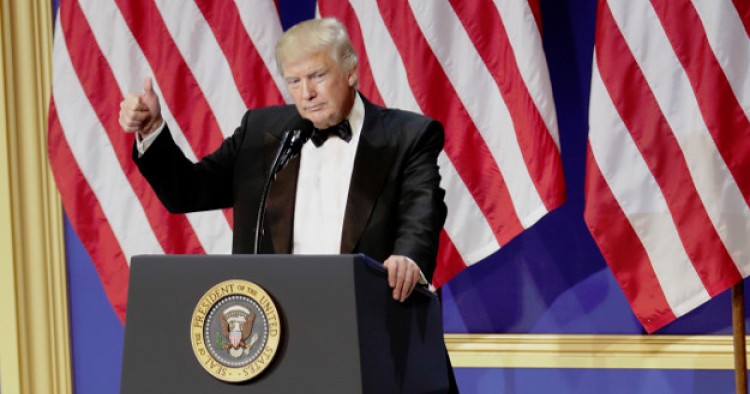The reaction in Tehran to Trump arriving in the White House has been cautious, but composed. The two dominant factions inside the Iranian regime, the moderates and the hardliners, appear to agree on the question of Iran’s posture toward the Trump presidency. Early signs of this emerging consensus points to an Iran that will have to be less provocative in its actions in the Middle East in order to avoid American reprisals. Even the most hawkish voices in the Islamic Revolution Guards Corps have warned about “sensitive days ahead between Iran and American generals.”
The Iranian leadership has across the board paid very close attention to statements made by senior Trump administration officials about the need to contain Iran while not necessarily nullifying the 2015 nuclear deal. This has been the key takeaway in Tehran resulting from the last few weeks of confirmation hearings of top Trump appointees, such as Secretary of Defense James Mattis and Secretary of State Rex Tillerson.
From Iran’s perspective, the best counter measure to this looming U.S. containment policy is to increase Iranian attempts aimed at détente with neighboring states. This is essential to prevent any successful Trump policy of isolating Iran. However, seeking détente with key regional rivals such as Saudi Arabia is a very steep climb for Iran. It is most likely unfeasible unless there is a significant shift in Tehran’s regional policies, and there is no sign of that as of today. Instead, Iran’s best hope is that the likes of Russia and China will prevent a successful American marginalization of Iran on the international stage, even if Tehran faces muscular push-back in the Middle East by a U.S.-led coalition, which is what President Donald Trump has promised.
The Middle East Institute (MEI) is an independent, non-partisan, non-for-profit, educational organization. It does not engage in advocacy and its scholars’ opinions are their own. MEI welcomes financial donations, but retains sole editorial control over its work and its publications reflect only the authors’ views. For a listing of MEI donors, please click here.












